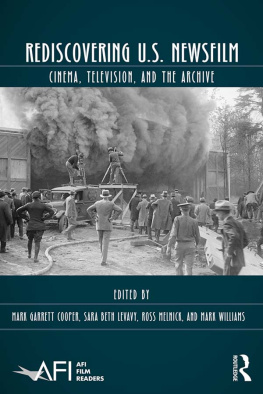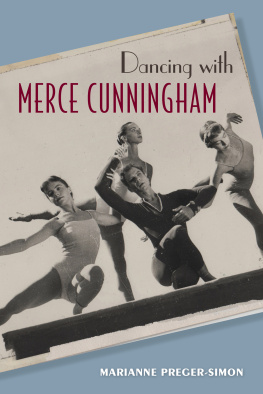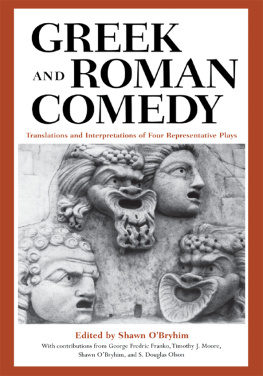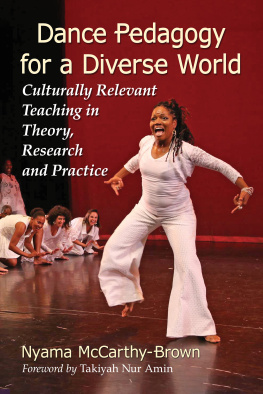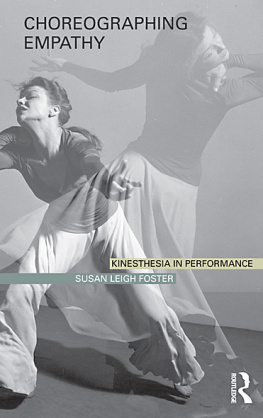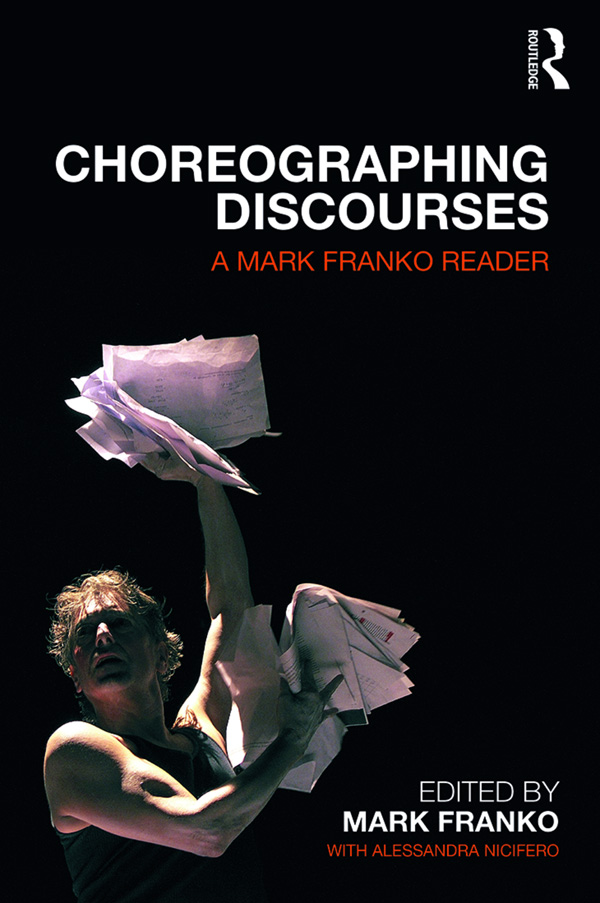
CHOREOGRAPHING DISCOURSES
Choreographing Discourses brings together essays originally published by Mark Franko between 1996 and the contemporary moment. Assembling these essays from international, sometimes untranslated sources and curating their relationship to a rapidly changing field, this Reader offers an important resource in the dynamic scholarly fields of dance and performance studies.
What makes this volume especially appropriate for undergraduate and graduate teaching is its critical focus on twentieth- and twenty-first-century dance artists and choreographers among these, Oskar Schlemmer, Merce Cunningham, Kazuo Ohno, William Forsythe, Bill T. Jones, and Pina Bausch, some of the most high-profile European, American, and Japanese artists of the past century. The volumes constellation of topics delves into controversies that are essential turning points in the field (notably, Still/Here and Paris is Burning), which illuminate the spine of the field while interlinking dance scholarship with performance theory, film, visual, and public art.
The volume contains the first critical assessments of Frankos contribution to the field by Andr Lepecki and Gay Morris, and an interview incorporating a biographical dimension to the development of Frankos work and its relation to his dance and choreography. Ultimately, this Reader encourages a wide scope of conversation and engagement, opening up core questions in ethics, embodiment, and performativity.
Mark Franko is Laura H. Carnell Professor of Dance at Boyer College of Music and Dance, Temple University (Philadelphia). Founding editor of the Oxford Studies in Dance Theory book series, Franko is currently a Guggenheim Fellow, writing a book on French neoclassical ballet.
Alessandra Nicifero is a dance writer and translator based in New York City. Her major interests focus on movement analysis, social choreography, the spatial organization of memories, and archiving dance material. Currently, she is studying at the New York Graduate School of Psychoanalysis.
First published 2019
by Routledge
2 Park Square, Milton Park, Abingdon, Oxon OX14 4RN
and by Routledge
52 Vanderbilt Avenue, New York, NY 10017
Routledge is an imprint of the Taylor & Francis Group, an informa business
2019 selection and editorial matter, Alessandra Nicifero and Mark Franko; individual chapters, the contributors
The right of Mark Franko to be identified as the author of the editorial material, and of the authors for their individual chapters, has been asserted in accordance with sections 77 and 78 of the Copyright, Designs and Patents Act 1988.
All rights reserved. No part of this book may be reprinted or reproduced or utilised in any form or by any electronic, mechanical, or other means, now known or hereafter invented, including photocopying and recording, or in any information storage or retrieval system, without permission in writing from the publishers.
Trademark notice: Product or corporate names may be trademarks or registered trademarks, and are used only for identification and explanation without intent to infringe.
British Library Cataloguing-in-Publication Data
A catalogue record for this book is available from the British Library
Library of Congress Cataloging-in-Publication Data
A catalog record has been requested for this book
ISBN: 978-0-815-37896-9 (hbk)
ISBN: 978-0-815-37898-3 (pbk)
ISBN: 978-1-351-22738-4 (ebk)
Typeset in Bembo
by codeMantra
Randy Martin
In 2011, Mark received the Congress On Research in Dance Award for Outstanding Scholarly Research. We include here the unedited transcription of the speech that Randy Martin, who passed away prematurely in 2015, gave in Marks honor during the CORD conference in Philadelphia in 2011.
It is such a pleasure to be able to speak about Marks work. Hes been a dear friend and someone from whom Ive learned enormously over the past twenty years. In some ways, Im going to focus just on the single-author books that he has written, of which there are five, and Ill just name them because they all have gorgeous titles and titles are sometimes the most fun part about writing books. But they are: Dancing Bodies in Renaissance Choreography, Dance as Text: Ideologies of the Baroque Body, Dancing Modernism/Performing Politics, The Work of Dance: Labor, Movement, and Identity in the 1930s, and Excursion for Miracles: Paul Sanasardo, Donya Feuer and the Studio for Dance (19551964).
So, saying that about someone who has made such incredible contributions, who is a dancer and choreographer, and author and editor, a teacher, a mentor... I think one of the things I find so amazing about these books is that they do display all of those different roles and capacities in them and Mark is really concerned about taking seriously the politics of form as it appears in the world, in dance, and in his writing. And perhaps we could say generally that in some ways his project has to do with the movement of dance in and as history, where he is trying to undo the very categories that would contain it. Of course, there is a doubling in Marks work. He has written books on the Renaissance, the Baroque, the Modern, and yet it is not just that those are historical periods, or containers if you will. They are also analytic moves. When he is interested in the Renaissance, he is also interested in the question of reinvention, of rebirth, of renewal, of how one inhabits something so that it turns into something else.
In the case of the Baroque, I think the Baroque flows through Marks work, right? There is all of this ornate detail and of course the root of Baroque, barocco, from the Portuguese the rough pearl. His work is just littered with rough diamonds and jewels that you chance upon and these concepts, these formulations make you puzzle, and make you work, and open things up for you in incredible ways.
And, of course, in the case of the Modern, the Modernus, the just now, Mark is constantly concerned with the conventions of Modernism, which would be based upon killing off the present-- I mean, killing off the past so that you can have a present in anticipation of some sense of an opening to the future. And I think one of the things that has been most focused in his work is to undermine that sense of obligatory movement and forward motion that the figure of the Modern is based upon. And he has done that both by dwelling in the modern, dwelling in the present, and by letting that present always have something else that is inside of it. In many ways, that threat of entering into the modern as undoing the possibility of dance, leaving it un-reflected, leaving it dematerialized, leaving it without a body, right? Precisely in the place that we might find most welcoming, most a sense of home, I think is also one of the ways in which Mark continues to act as a teacher, as a pedagogue. And this, in part, is what he means by the work of dance, and I think in the book of that title, he has gotten a wonderful paradoxical formulation, where he says that by the work of dance he means that its product is ideology and its labor is something that he calls metakinetic, but what is exchanged - that identity - is not produced, and what is produced - the ideology - cannot be exchanged. So this, kind of, figure of a double impossibility - something that seems like it is something solid that he then opens up, creates more room out of,
Next page

